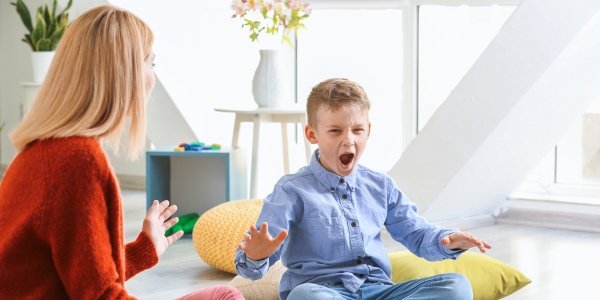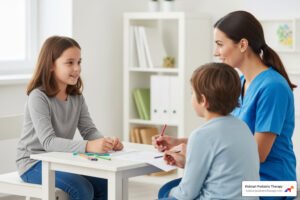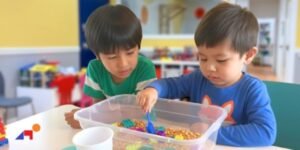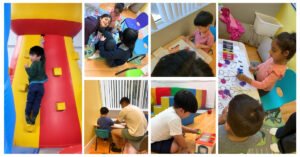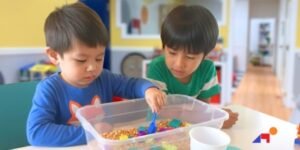Emotional dysregulation in children presents a significant challenge in pediatric therapy, often manifesting as difficulty managing intense emotions, impulsivity, and impaired social functioning. At Kidstart Pediatric Therapy, located in Burnaby, BC, we leverage cutting-edge advancements in emotional regulation therapy to provide children with tailored interventions that foster resilience and adaptive coping skills.
Understanding Emotional Dysregulation in Children
Emotional dysregulation refers to difficulties in modulating emotional responses appropriately to situational demands, often resulting in heightened emotional reactivity and poor impulse control. It is a transdiagnostic feature implicated in various pediatric conditions, including ADHD, anxiety disorders, and mood dysregulation syndromes. Research indicates that up to 10-15% of children in clinical settings exhibit significant emotional regulation challenges, underscoring the need for effective therapeutic interventions.
Evidence-Based Therapeutic Innovations
Cognitive Behavioral Therapy (CBT) and Dialectical Behavior Therapy (DBT)
CBT remains a cornerstone in emotional regulation therapy, focusing on restructuring maladaptive thought patterns to promote healthier emotional responses. DBT, originally developed for borderline personality disorder, has been adapted for pediatric populations to teach skills in emotional regulation, distress tolerance, interpersonal effectiveness, and mindfulness. These therapies empower children to identify emotional triggers, apply coping strategies, and enhance self-control.
At Kidstart Pediatric Therapy, we integrate CBT and DBT principles within our individualized treatment plans, ensuring children develop practical skills to manage emotional challenges effectively.
START-Kids: Stress-Arousal-Regulation-Treatment
A recent innovation is the START-Kids program, a low-threshold, group-based intervention designed specifically for children aged 6 to 12 with emotional dysregulation. Grounded in DBT principles, START-Kids involves twice-weekly 60-minute sessions over eight weeks. A pilot study involving 23 child psychiatric patients demonstrated significant improvements in personality functioning and emotional regulation with no dropouts, highlighting the program’s feasibility and efficacy.
Kidstart Pediatric Therapy is pioneering the integration of START-Kids methodologies, adapting them to the unique needs of children in Burnaby, BC, to maximize therapeutic impact.
Mindfulness and Breathing Techniques
Mindfulness-based interventions are gaining traction as adjuncts to traditional therapy. Techniques such as guided meditation, Balloon Breathing, and Dragon Fire Breathing help children cultivate emotional awareness and regulate physiological arousal. These practices facilitate a pause between emotional stimulus and reaction, promoting calmness and clarity.
Our therapists at Kidstart incorporate mindfulness exercises into therapy sessions and coach parents to reinforce these skills at home, creating a consistent emotional regulation environment.
Technology-Enhanced Interventions
Emerging technology offers promising avenues for emotion regulation therapy. Interactive tools like Purrble, a socially assistive robot plush toy, provide real-time haptic feedback to support children’s in-the-moment emotion regulation outside clinical settings. While quantitative data is still forthcoming, preliminary qualitative evidence suggests high engagement and integration into daily emotional routines.
Kidstart Pediatric Therapy is actively exploring such innovations to complement traditional therapy, enhancing accessibility and engagement for children.
Emotional Regulation Therapy in Burnaby, BC
Burnaby’s pediatric population reflects a growing demand for specialized emotional regulation services. According to recent community health data, approximately 12% of children aged 6-12 in the region exhibit clinically significant emotional dysregulation symptoms, correlating with increased referrals to pediatric therapy clinics. Kidstart Pediatric Therapy’s commitment to evidence-based, innovative interventions positions it as a leader in addressing this critical need.
Emotional Regulation Therapy in Burnaby BC
Innovations in emotional regulation therapy are reshaping the landscape of pediatric mental health treatment. By integrating evidence-based modalities such as CBT, DBT, START-Kids, mindfulness practices, and technology-enhanced tools, Kidstart Pediatric Therapy offers comprehensive, cutting-edge care tailored to children’s unique emotional needs. Our expertise and commitment to ongoing research and local community engagement make us the premier choice for families in Burnaby seeking effective emotional regulation therapy.
FAQs
- How does emotional regulation therapy differ from general behavioral therapy for children?
Emotional regulation therapy specifically targets a child’s ability to recognize, manage, and respond to their emotions in adaptive ways, whereas behavioral therapy broadly addresses patterns of behavior, including actions and reactions. Emotional regulation therapy often incorporates mindfulness, co-regulation strategies, and skills training to help children navigate intense feelings effectively. - Can Kidstart Pediatric Therapy customize emotional regulation therapy for children with co-occurring conditions like ADHD or anxiety?
Yes, Kidstart Pediatric Therapy specializes in tailoring emotional regulation therapy to children with co-occurring diagnoses such as ADHD, anxiety, or sensory processing challenges. Our multidisciplinary approach ensures that therapy addresses the unique emotional and behavioral needs of each child, enhancing overall treatment outcomes. - What role do parents play in the emotional regulation therapy process at Kidstart?
Parents are integral partners in therapy. We provide parent coaching and education to reinforce emotional regulation strategies at home, creating a consistent environment that supports the child’s progress. This collaborative approach maximizes skill generalization beyond therapy sessions. - How long does emotional regulation therapy typically last for children at Kidstart?
The duration varies depending on the child’s individual needs and progress. Typically, therapy spans several months with regular sessions, but ongoing assessments allow us to adjust the plan to ensure effective, goal-oriented treatment. - What makes Kidstart Pediatric Therapy a leader in emotional regulation therapy in Burnaby?
Kidstart combines evidence-based modalities like CBT, DBT, and START-Kids with innovative mindfulness and technology-enhanced tools. Our team’s expertise and commitment to personalized care set us apart as a premier provider for emotional regulation therapy in Burnaby, BC.
People Also Ask
- At what age can children benefit from emotional regulation therapy?
Children as young as preschool age can benefit from emotional regulation therapy, as early intervention helps develop foundational skills in recognizing and managing emotions before patterns become entrenched. - How do therapists measure progress in emotional regulation therapy?
Therapists use standardized tools like the Levels of Personality Functioning Questionnaire (LoPF-Q) and observational assessments to track improvements in emotional control, impulse management, and social interactions over time. - Are there any home activities that support emotional regulation therapy?
Yes, activities such as practicing deep breathing exercises, engaging in mindfulness games, and using emotion charts can reinforce skills learned in therapy and help children apply them in daily life. - Can emotional regulation therapy help improve a child’s academic performance?
Improved emotional regulation often leads to better focus, reduced anxiety, and enhanced classroom behavior, which collectively contribute to improved academic outcomes. - What makes technology-based tools effective in emotional regulation therapy?
Technology tools like interactive apps or assistive robots provide engaging, real-time feedback that helps children practice self-regulation skills independently, increasing motivation and accessibility outside clinical settings.

